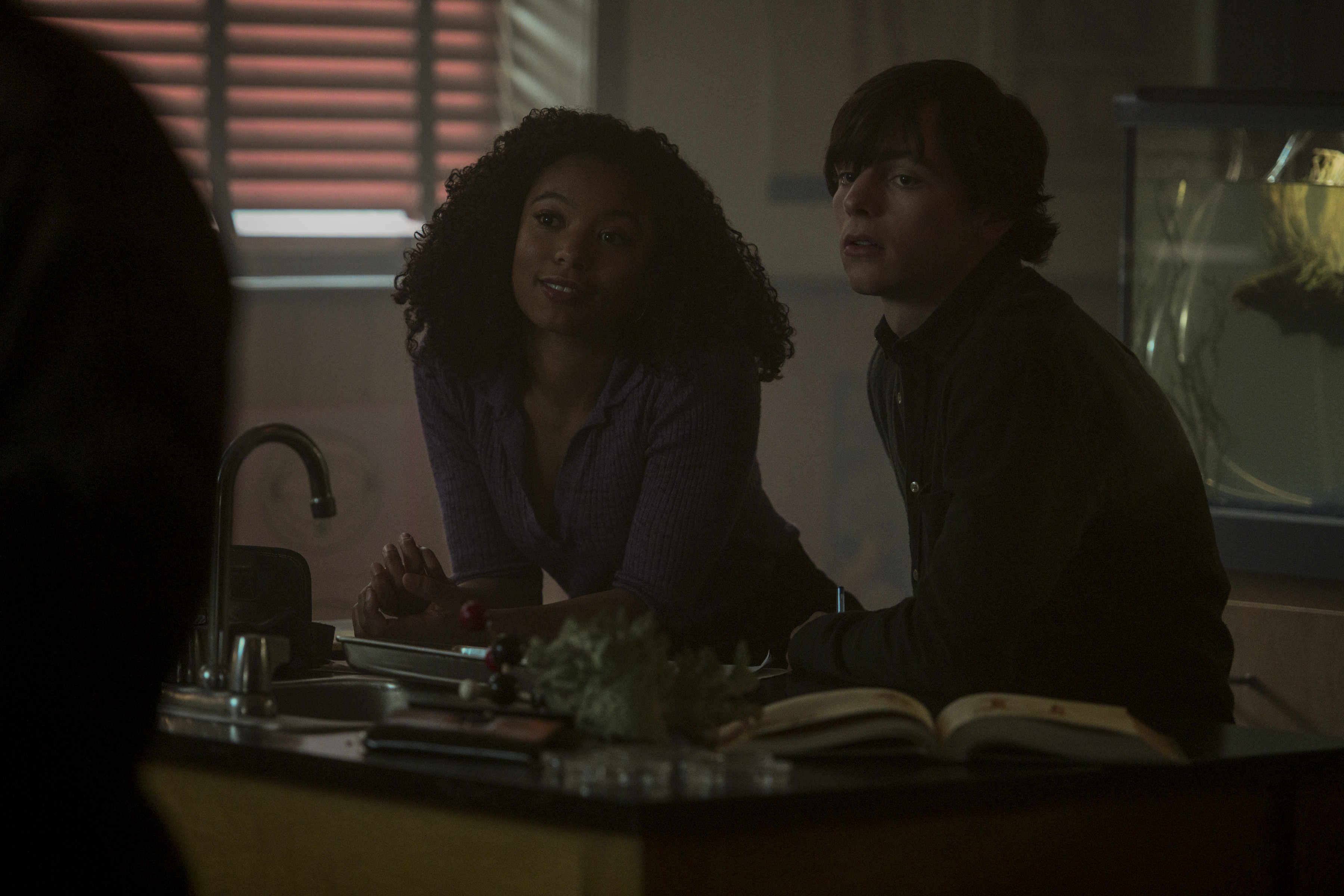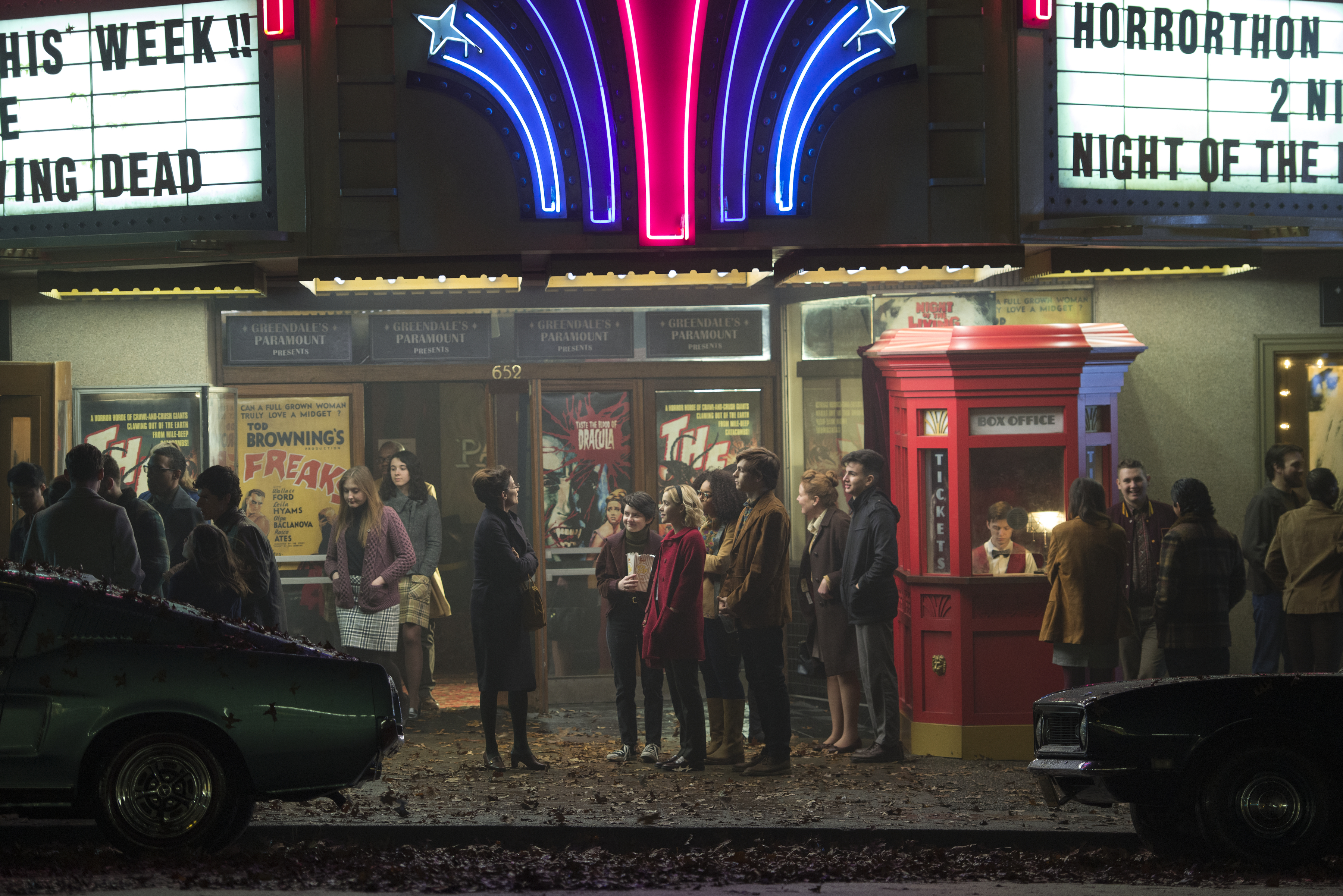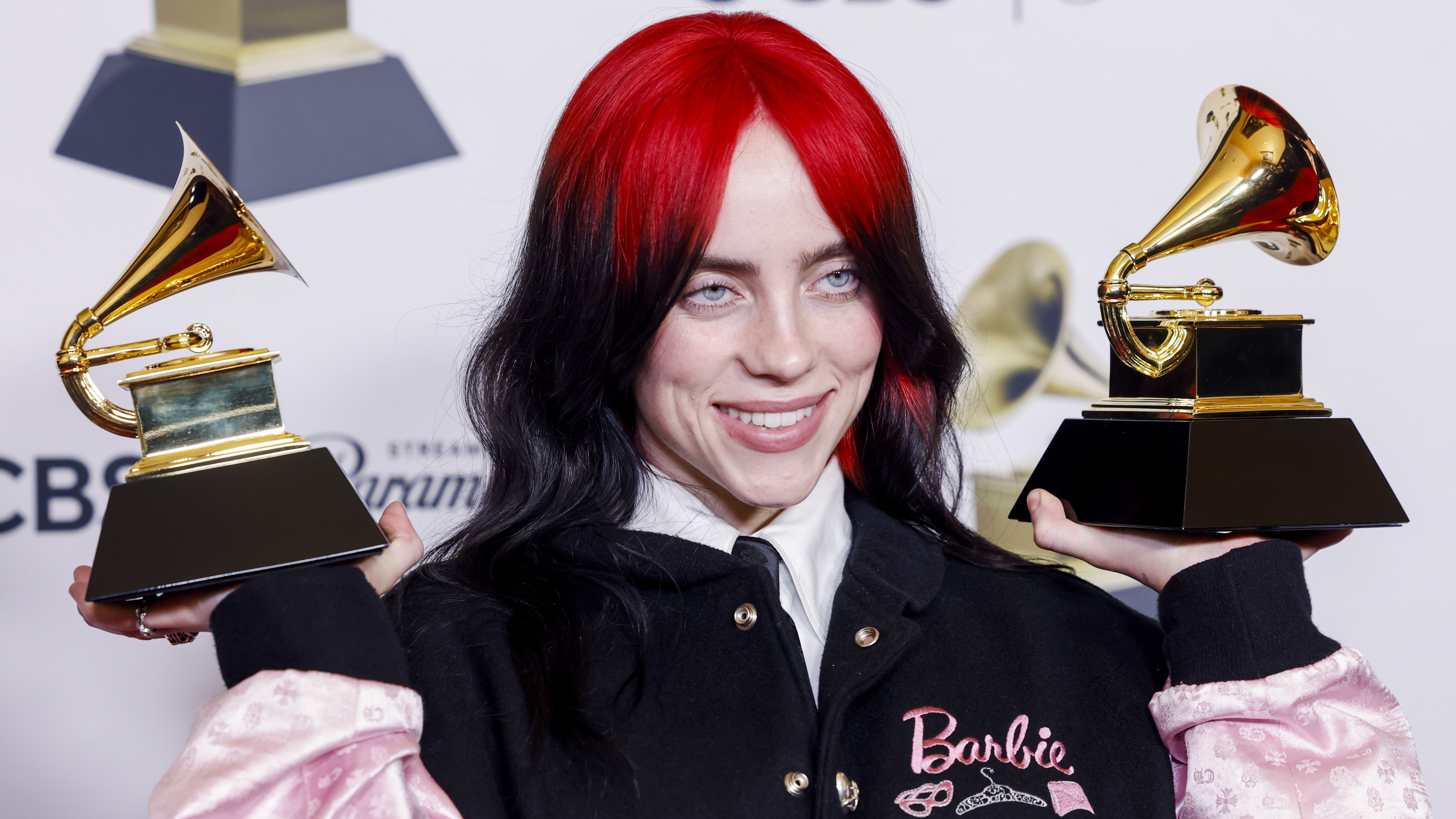Chilling Adventures of Sabrina is stuck in the past with Harvey Kinkle
Harvey is far from the first man to bristle at his love interests' powers, but shouldn’t we be beyond this trope by now?

This post contains detailed spoilers for Chilling Adventures of Sabrina
You can read our spoiler-free season 4 review here.
Sabrina Spellman (Kiernan Shipka) is half-witch, half-mortal, and has spent her time in Greendale torn between two very different worlds. When Chilling Adventures of Sabrina debuted in 2018, the titular young witch was just about to turn 16 and was facing a major dilemma. Living a double life is never easy, which saw Sabrina concealing her witchy side from her mortal pals and boyfriend Harvey Kinkle (Ross Lynch). It was only a matter of time before the two intersected and casting spells to make someone forget was far from a permanent solution. Secrets aid dramatic tension, but they can also drag the narrative down, and earlier episodes of CAOS suffered from this storytelling trope. When Harvey did find out — and didn’t have his memory wiped — it contributed to their subsequent breakup.
Harvey is far from the first man to fall for a woman with magic abilities, which has long been a foundation of this genre. Similar to the men that came before him, the adolescent struggles to get his head around the power disparity. It is unfortunate that in the final season, this character once again falls into the Darrin Stephens (Dick York) from Bewitched trap.
During its eight-season run, Bewitched leaned into Darrin’s displeasure whenever his wife Samantha (Elizabeth Montgomery) used witchcraft. Debuting in 1964, the first episode showed Darrin finding out his new bride is not the woman he thought she was, and she vows to never use her powers again. She wants to become a suburban housewife and live like a “normal happy couple.” Thankfully, her desire to use magic prevails and her mother Endora (Agnes Moorehead) is always on hand to encourage her daughter. In these early episodes, the language used to discuss her abilities is similar to an addiction. This includes Darrin proclaiming “I love you and I can’t give you up,” while Samantha notes it is “harder to break the habit” than she expected. Buffy the Vampire Slayer and Chilling Adventures of Sabrina have also incorporated dependency storylines, which is one of the most potent allegories — even if magic is something innate to these characters.
Rewatching this sitcom classic not only serves as good preparation for the forthcoming WandaVision, but the adventures of the Stephens family also point to the problem with Harvey that has plagued the series. Rather than give Ross Lynch something new to do this season, the writers retread old ground. Instead of Sabrina, Roz (Jaz Sinclair) is the one who has to break it to her boyfriend that she is a witch, and he once again reacts like Darrin Stephens. Sure, Bewitched is a sitcom so the rules are somewhat different, and often, Darrin’s displeasure makes him the focus of the jokes. His desire to have a wife that behaves “normally” is often undercut by his hypocrisy of wanting Samantha to use her magic when it suits him. He might protest, but there are plenty of occasions in which he does turn a blind eye. His resistance to witchcraft is perhaps understandable when his mother-in-law resorts to revenge via spells when he is pitching or having an important client over for dinner — including turning him into a werewolf and a child. Asking his wife to give up her power seemed retrograde even in the mid-60s when the sitcom premiered.
Six years before Samantha Stephens made her TV debut, Kim Novak starred as witch Gillian Holroyd who puts a love spell on publisher Shep Henderson (James Stewart) in Bell, Book and Candle. The festive-set rom-com is a “careful what you wish for” scenario that sees Gillian confess her witchy status when the infatuation has gone too far. She has actually fallen for Shep and when she declares her love, she loses her powers. Now she is no longer a witch, Gillian can cry and feel things she has never felt before, and in this case, losing her powers is a side effect of human love. In the mid-century, a woman couldn’t actively be a witch and have a human husband — we can never truly have it all — and at times it feels like Harvey is stuck in this particular era.

Not only does it always feel like Halloween in Greendale, but as with every other recent Archieverse show (see Riverdale and the canceled-too-soon Katy Keene) it is aesthetically stuck in a time warp. Some modern technology is used but computers, smartphones, and social media don’t dominate. The heightened stylistic retro costume and production design are part of the CAOS charm, but in the case of Harvey Kinkle, this throwback is far less appealing. He isn’t a straight-up misogynist (like Father Blackwood) as his aversion to magic is rooted in past trauma including being the target of the original Weird Sisters and the death of his older brother. The latter was the result of Agatha (Adeline Rudolph) and Dorcas (Abigail Cowen) and he rediscovered Sabrina's Wicca status when she tried unsuccessfully to bring Tommy back from the dead. It is hardly surprising that he finds it hard to trust those with powers, but by the final season, he has worked alongside this coven enough to know where their loyalty lies.
The latest updates, reviews and unmissable series to watch and more!
Unfortunately, he reverts back to those old feelings when Roz reveals her recently discovered witchy roots. “You told me point-blank you weren’t a witch,” Harvey says in a disappointed tone with a hint of disgust in “The Imp of the Perverse.” Roz points out that she didn’t think she was — this could be character retconning but her role as a Weird Sister gives Roz something substantial to do. Either way, Harvey’s petulance is tiring when he complains to Theo (Lachlan Watson) in the following scene, “Why does every girl I fall in love with turn out to be a witch?” His attempt at trying to be supportive is to give her a hard time regarding her busy schedule but the argument is cut short when an Eldritch Terror set free by Father Blackwood (Richard Coyle) creates a very different Greendale.
In this alt-universe, Harvey comes through for the witches, and while ultimately he isn’t a terrible guy, the writers tend to paint him in bland and repetitive brushstrokes. The latter means that when he does oppose the use of witchcraft, it is easy to dismiss his objections as sulky behavior when it is rooted in trauma. After this Terror is put to bed, he apologizes for his petulance, “Earlier, I was an ass. I freaked out, which is okay, but I should’ve said, “I love you, and I’m here for you, all of you, witch, Sentinel, co-president.” His change of heart is a result of the fascist regime that Blackwood temporarily inflicted on this town, rather than coming to this conclusion by himself.
This kind of reaction is not just reserved for men married to and dating witches, as it is a common (and tiresome) obstacle that women who are doing important work in movies and TV shows have to put up with. It is why a character like Steve Trevor (Chris Pine) felt like such a breath of fresh air in the first Wonder Woman — his perfect boyfriend status is an issue in the sequel but for very different reasons. Conflict is required to up the dramatic stakes but more often than not Harvey has dragged down Sabrina’s human pals because he complains about everything. It also doesn’t help that his father is continuously finding himself in the midst of danger, therefore, giving Harvey more fuel for his anger and outrage. In a world in which supernatural forces cohabit with mortals, it is a shame Harvey can only shed prejudices languishing in the past so late in the game.
Emma Fraser spends most of her time writing about TV, fashion, and costume design; Dana Scully is the reason she loves a pantsuit. Words can also be found at Vulture, Elle, Primetimer, Collider, Little White Lies, Observer, and Girls on Tops. Emma has a Master’s in Film and Television, started a (defunct) blog that mainly focused on Mad Men in 2010, and has been getting paid to write about TV since 2015. It goes back way further as she got her big start making observations in her diary about My So-Called Life’s Angela Chase (and her style) at 14.



